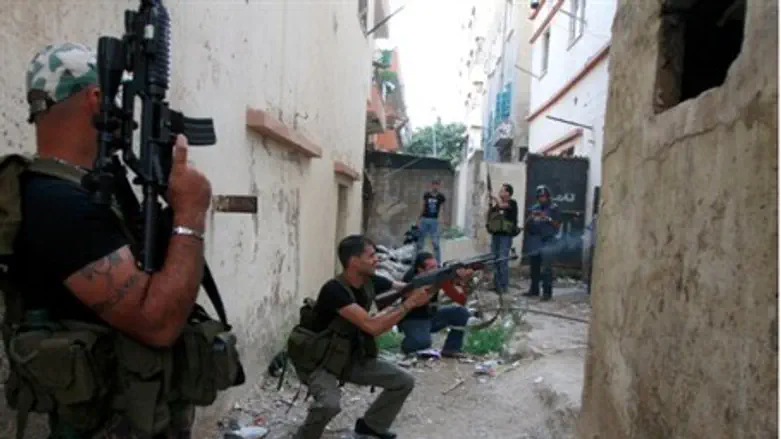
American media outlets report that weapons shipments to opposition forces in Syria are falling into the hands of radical Islamists instead of their intended recipients.
Writing for The New York Times, journalist David Sanger has revealed a classified U.S. government report that said arms shipments to Syrian rebels from Saudi Arabia and Qatar are reaching Muslim extremists – including those linked to Al Qaeda. Sanger quoted a U.S. official who said that the groups receiving the aid "are exactly the ones we don't want to have it."
A second issue is the nature of the U.S. government's role in this scenario: the U.S. has been helping Saudi Arabia and Qatar send the weaponry, which is light arms such as rifles and grenades, to the rebels.
President Barack Obama's strategy of sending weaponry indirectly has meant having no real control over how it gets to where it's going and who it gets to when it gets there. As a result, the arms have often ended up in the hands of America's enemies, the article points out.
But it's not clear whether a different strategy would change that picture.
GOP presidential contender Mitt Romney said in a speech at the Virginia Military Institute a week ago he would give the weapons directly to those who "share our values," ergo, the rebels, albeit also Islamists, rather than have them fall into the hands of extremists. One does not have to be a rocket scientist to know that the Syrian rebels, who have also been accused of atrocities, do not necessarily "share [America's] values." It's a question of choosing the lesser of two evils, and hoping one guesses correctly.
In Libya, where a similar guess was made barely a year ago, the answer is not yet clear. Last month U.S. Ambassador Christopher Stevens and three American diplomats paid the ultimate price as a result.
Speaking on CBS's "Face the Nation," U.S. Sen. Lindsey Graham (R-SC) said on Sunday that he was told by members of the intelligence community who are on the ground in Libya that the Obama administration knew "within 24 hours" that the attacks in Benghazi were coordinated and conducted by an Al Qaeda-linked group. Graham said that there is "overwhelming" evidence the assault was not the result of spontaneous protests that had turned violent over an anti-Islam film, as the Obama administration had suggested, but that it was a "sustained attack that lasted for six or eight hours, using heavy weapons."
Former Libyan dictator Col. Muammar Qaddafi warned in the months before he was toppled from power that among the rebels seeking to depose him were Al Qaeda terrorists who were working to secure their presence in the country.
At present, Syria's President Bashar al-Assad is still far from being wrested out of Damascus. With backing from Iran, Russia and China, and the latter two holding off intervention from the United Nations Security Council, Assad is unlikely to be toppled by the rebels before America's national election on November 6. What might happen after that is anyone's guess.
Assad's father, Hafez al-Assad, killed close to 40,000 of his own people in a similar attempted uprising that began with the Muslim Brotherhood in Hama in 1982.
Some 32,000 people have been killed since the civil war began with a teenager scrawling a slogan on a wall in Dera'a in March 2011, inspired by the Arab Spring uprisings that were sweeping the region. Well over 200,000 others have left Syria altogether and are now living in refugee camps in neighboring countries. More than a million others are still trapped within the country, waiting on the border to escape, homeless and living in displaced person camps or wandering around the countryside.
The conflict has spilled over into Lebanon, Jordan and Turkey more than once. Syrian army regulars have chased rebels in Lebanon, fired artillery at rebels and hit a town in Turkey - killing five citizens - and sent gunfire blazing into Jordan a few times too. Syria, once a respected member of the Arab League, has been ejected from that body.
It's impossible to know whether Assad will survive the next year or not -- but given the current fragmentation of the opposition forces, if he doesn't, there is no guarantee that the winner of the internal struggle to succeed him will be any less vicious.
